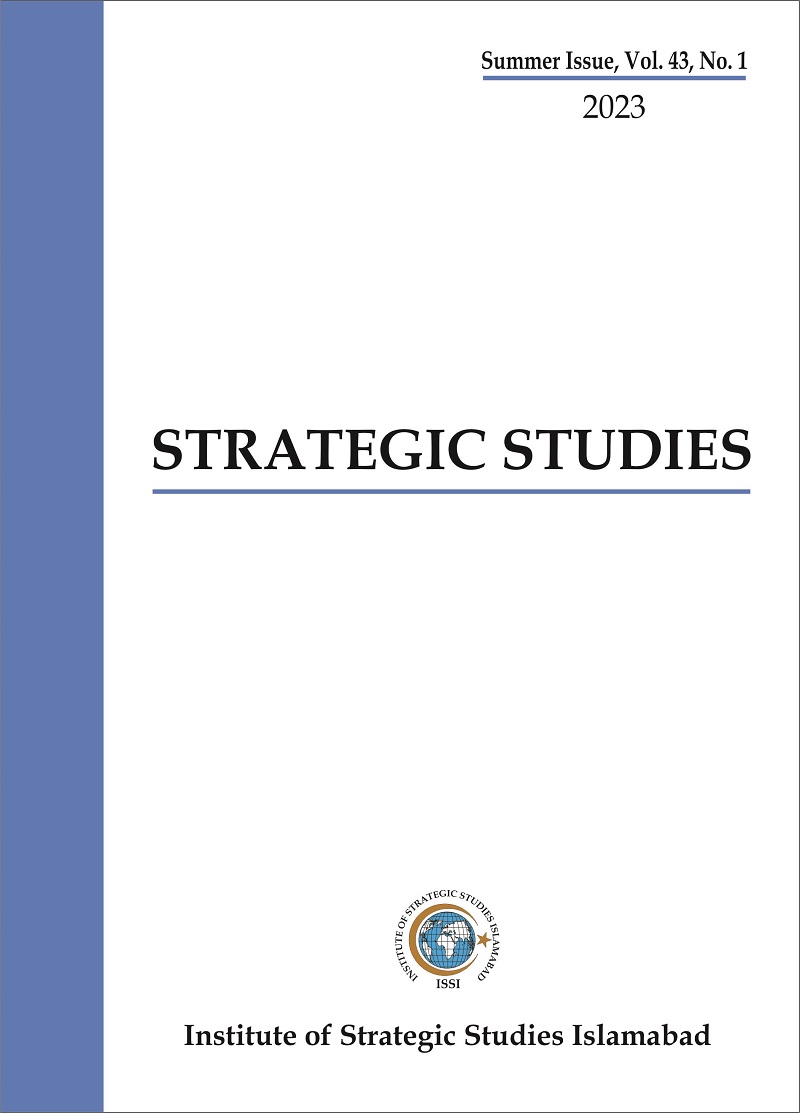Strategic Stability in South Asia: The Evolving Challenges and Potential Opportunities for India and Pakistan
Keywords:
Strategic Stability, , India, , Pakistan, , Nuclear, , CBMs, , South Asia.Abstract
The strategic stability debate in South Asia is largely influenced by the complex and volatile relationship between nuclear rivals India and Pakistan. Growing competition between the United States (U.S.) and China and border dispute between China and India are influencing the security dynamics of the region, but it is the aggravating hostility between New Delhi and Islamabad over ongoing issues such as Kashmir and terrorism charges against one another that have increased risk of war in the region. The fragile balance of terror is influenced by various challenges such as evolving nuclear postures, regional power competition, conventional and nuclear arms race, and emerging technologies. In that regard, it is imperative that both states engage to resolve outstanding issues, develop confidence and evolve a strategic restraint regime to strengthen strategic stability in the region.

Published
How to Cite
Issue
Section
Copyright (c) 2023 Strategic Studies

This work is licensed under a Creative Commons Attribution-NonCommercial 4.0 International License.



